When Annel Fernandez was in high school, she thought she might one day pursue medicine as a career. As a daughter of immigrants from the Dominican Republic, she saw firsthand how chronic diseases and a lack of access to healthcare affected the quality of life of her friends and family in the South Bronx.
Then, in her sophomore year, she learned about and was accepted into the Einstein Enrichment Program (EEP).
“It just felt like home,” she says of EEP, which offered her exposure and mentorship in the fields of science and medicine throughout her high school years. “Being surrounded by mentors and faculty who care about you and believe in you does wonders for your ability to succeed.” Dr. Fernandez is now an internal-medicine resident in Boston.
Launched at Einstein in 1988, EEP serves high-achieving Bronx high school students from groups historically underrepresented in the science, technology, engineering, and mathematics (STEM) fields or who are economically disadvantaged. The program is supported on an annual basis primarily by the New York State Education Department’s Science and Technology Entry Program, with Einstein contributing some of the funding. This year’s EEP has space for 77 participants, and the number of applicants always exceeds the available spots.
Most students enter the program as high school sophomores or juniors who have grade point averages of 85 or higher. Twice a week after school, students go to Einstein lecture halls for instruction in algebra, biology, chemistry, and physics and to hear from healthcare professionals, prepare for standardized tests, learn study skills, and work through college and financial-aid applications. (The program was virtual during the past three years because of the COVID-19 pandemic.) In the summer, EEP students spend four days a week over four weeks pursuing research projects and shadowing healthcare professionals.
“We attract a dedicated, hard-working group of young people,” says Nilda I. Soto, M.S.Ed., who retired in May 2023 after 33 years as EEP’s director. She’s justifiably proud of the program’s success. “One hundred percent of our graduates go on to college, often with scholarships,” she says. She notes that alumni have entered careers in business, law, and teaching in addition to healthcare.
The program’s new director, Reginald Hayes, M.Div., M.B.A., Einstein’s assistant dean of outreach and pathway programs in the office of diversity and inclusion, is concerned that the pandemic has worsened the already wide educational deficit between underresourced Bronx schools and those in more-affluent areas. “That deficit is why EEP has existed for so long and why the need for the program continues,” he says.
We caught up with five EEP alumni to talk about where they are now and how the program has helped shape their lives and careers in medicine and science.
Watching doctors in action while she was still in high school steered Cynthia Akwatu toward a medical career. During her summers in EEP, she shadowed a pediatric gastroenterologist and a trauma surgeon at Jacobi Medical Center. She got to watch physicians examine a child’s esophagus with an endoscope, perform laparoscopic gallbladder surgery, and remove a bullet from a gunshot wound.
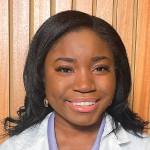
I want to do something meaningful day to day that also positively affects the community as a whole.
— Cynthia Akwatu, Medical Student
The medical teams told her that she could sit in the back if she got nauseated or dizzy, but instead she experienced fascination—and ambition. “My first times in the operating room made me realize what an impact a doctor can have on a patient’s life,” she says. “It made me want to go into some type of surgical specialty.”
Ms. Akwatu’s parents emigrated from Nigeria to the United States before she was born, and she is a citizen of both countries. As a Nigerian American, she felt comfortable that many of the healthcare professionals she met through EEP— including the physicians she shadowed—were from groups underrepresented in medicine. “They were people who looked like me,” she says. “If they could become doctors, I knew I could too.”
She was valedictorian of her Bronx high school and had the highest grade point average among the graduating seniors in EEP. She received several scholarships to attend the University of Pennsylvania, where she earned a bachelor of arts degree in neuroscience. She is now attending Einstein on a full scholarship awarded by the federal government’s National Health Service Corps program.
Ms. Akwatu is interested in a career in obstetrics and gynecology. She is motivated by statistics showing that the Bronx has one of the country’s highest maternal mortality rates, with Black women far more likely to die in childbirth than women of other races. “That resonated with me,” she says. “I want to do something meaningful day to day that also positively affects the community as a whole.”
For the three years that Dr. Fernandez participated in EEP, her father worked in a bodega and did other part-time work. Yet he also found time to drive his daughter and her classmates to Einstein, often waiting in the car for hours until it was time to drive them home. “It was a huge sacrifice and commitment from him,” says Dr. Fernandez. “But my family’s understanding was that this program was so important to our future.”
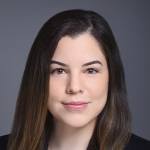
Being surrounded by mentors and faculty who care about you and believe in you does wonders for your ability to succeed.
— Dr. Annel Fernandez
EEP helped her tap into her desire to serve people in her community. For example, working with other EEP students, she developed information for teens on sexually transmitted diseases, which she distributed at health fairs. She helped create brochures outlining ways in which teens could cope with having a parent diagnosed with breast cancer.
She founded a health leaders’ club at her all-girls high school after noticing that many students lacked knowledge about the path toward a medical degree. She brought physician speakers from EEP to her school and led events educating her peers about relevant health topics. “It was a way for me to share and expand on this wonderful resource that is EEP,” she says.
Dr. Fernandez’s next destination—Columbia University—was a bit of a culture shock. After struggling to fit in and keep up academically, she found support from someone she’d met through EEP—a pediatric resident a few years her senior who, like her, was Hispanic and from the Bronx. “She gave me the confidence to know that I could do it,” says Dr. Fernandez. “Eleven years later, she’s still my mentor.”
After graduating with a psychology degree, Dr. Fernandez worked at the Hospital for Special Surgery in New York City, assisting with clinical trials in rheumatology. She went on to medical school at Columbia’s Vagelos College of Physicians and Surgeons and last year began her internal-medicine residency at Harvard’s Brigham and Women’s Hospital.
Dr. Fernandez is planning to specialize in gastroenterology. She hopes to serve as a bridge between academic medical centers and community organizations, advancing research that actively engages community members. “I’m truly passionate about creating evidence-based health interventions in real-world settings—that’s the work I want to do,” she says.
Maudina Gumbs, M.D., knew she wanted to be a doctor the moment she first used a stethoscope. During her summer EEP program, she was shadowing a pediatric resident at Montefiore who guided her through examining young patients. “That’s when I felt that this was my calling,” she recalls.
After using the stethoscope on a couple of patients, she was reluctant to let go of the precious instrument. “The resident looked at me and said, ‘My stethoscope, please,’” she says, laughing. “But I was having a moment with myself, holding the stethoscope and feeling like I was the physician.” EEP also gave her the opportunity to meet healthcare professionals from backgrounds like hers. An Einstein medical student who was a speaker for one of her EEP classes ended up becoming one of her best friends. “She was also a Black female interested in pediatrics, so we bonded.”
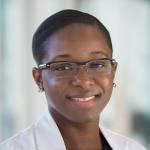
The EEP allowed a girl from a small high school in the Bronx to explore her interests. Everything that I wanted to be, I am.
— Dr. Maudina Gumbs
Following high school, Dr. Gumbs enrolled in the City University of New York’s Sophie Davis School of Biomedical Education in a seven-year program that combines undergraduate education with medical school.
Students fulfill all the requirements for a bachelor of science degree during the first three years of the program before completing four years of medical school—in Dr. Gumbs’s case, New York Medical College.
She was then accepted as one of just four residents in Montefiore’s competitive social pediatrics program and found she connected well with patients, who trusted and appreciated her. “I’m a Black woman, and I practice in a predominantly Black and Hispanic area,” she says.
Dr. Gumbs now works at Montefiore’s Comprehensive Family Care Center. A Bronx native, she still lives in the borough, treats many families from her neighborhood, and is the mother of two girls, ages 4 and 9. She believes that her effectiveness as a pediatrician stems from the close relationships she forms with her patients. When she recently made a hospital visit to see a newborn, the baby’s parents asked her to be the godparent.
“The EEP allowed a girl from a small high school in the Bronx to explore her interests,” Dr. Gumbs says. “Everything that I wanted to be, I am. And being part of EEP is definitely why I’m here today.”
When Mohammad (MD for short) Kabir, Ph.D., was 12, he moved with his parents from Bangladesh to the Bronx. Mastering English—his fifth language—took him a while, but the sciences came naturally. His guidance counselor suggested during Dr. Kabir’s first year in high school that he apply for EEP, but he was worried about the required essay; his family had no computer.
He wrote a one-page essay with pencil and paper and was accepted into the program. “It completely changed my life,” says Dr. Kabir, who recently graduated with a Ph.D. in biomedical sciences with a focus on chemical biology and medicinal chemistry from the Icahn School of Medicine at Mount Sinai.
EEP exposed him to scientific thinking, he says, and to role models in medicine. One summer, he helped develop a tool to assess whether patients were ready to move on from intensive care. The next, he shadowed an emergency physician at Montefiore Medical Center as the doctor treated everything from convulsions to a severed finger. He admired the doctors who had the confidence and the competence to jump in and save a life.
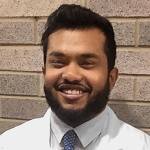
I graduated from EEP knowing two things. First, that I wanted to be a scientist, and second, that I wanted to use science to help people.
— Dr. Mohammad Kabir
Dr. Kabir says that he graduated from EEP knowing two things: “First, that I wanted to be a scientist, and second, that I wanted to use science to help people.”
After falling in love with research while attending the City College of New York, Dr. Kabir spent three years at the National Institutes of Health in Bethesda, Md., helping develop drugs to treat rare diseases. He has continued that line of research at Mount Sinai, where he looks for molecules that target proteins implicated in cancers and other diseases. He recently developed a technology for creating drugs that suppress tumor growth and potentially treat peripheral neuropathy. After another year or so of research, he plans to launch a company to bring that technology to patients.
Dr. Kabir says he is grateful for the support he received through EEP and soon will pay it forward. This fall he’ll be mentoring students enrolled in Einstein’s EEP.
Service is the thread connecting generations of EEP students, says Mr. Hayes, the EEP director. “The young people we are training and sending forth realize that the health professions are about helping people,” he says. “They’ve connected their privilege in having opportunities to their responsibility to serve humanity, to treat people with dignity and respect.”
Amadou N’Dow, M.D., an emergency medicine physician at Mercy Medical Center in Bethpage, N.Y., had wanted to be a doctor since he was a toddler. Severe childhood allergies meant that he spent lots of time in doctors’ offices, where he developed close relationships with his healthcare team. In particular, he looked up to his pediatrician, who was also of African descent. (Dr. N’Dow has an African father and a Jamaican mother.) He remembers thinking, when he spotted an EEP flyer in his high school guidance counselor’s office, “Why not?”
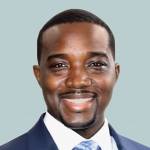
My family, my peers, my friends and their families—none wanted to go into medicine. What normalized it for me was EEP—being exposed to healthcare professionals who looked like me and to other students from similar backgrounds who shared my interests.
— Dr. Amadou N’Dow
“Initially, I think, the biggest attractions were the free MetroCard subway pass and the stipend students receive over the summer,” he says, laughing. (EEP students earn between $500 and $750 for participating in summer research programs.) But he now sees that time as pivotal to his career. “Medicine can be a difficult path to pursue where I come from,” says Dr. N’Dow. “My family, my peers, my friends and their families—none wanted to go into medicine. What normalized it for me was EEP—being exposed to healthcare professionals who looked like me and to other students from similar backgrounds who shared my interests.”
After graduating from Binghamton University, Dr. N’Dow spent a couple of years taking additional science classes at the City University of New York and conducting research at Einstein. His efforts paid off, and he joined the Class of 2013 at Drexel University College of Medicine in Philadelphia.
“Even now, in my hospital, I can count on one hand the number of doctors who look like me, a Black male physician,” he says. “When I see patients in the emergency department and I’m interacting with people from all different backgrounds, that’s the one thing they say—‘Oh, wow, I’ve never seen a Black male physician.’ So even in 2023, it’s not nearly as common as people would think.”
Dr. N’Dow vividly remembers, while in EEP, shadowing a senior pharmacist at Jacobi Medical Center. “He was an older Jamaican gentleman who carried himself in such a professional manner and treated everyone with respect, including folks he supervised,” he recalls. “I wanted to emulate that attitude, and it’s become part of my identity as a physician.”
How can medical schools such as Einstein sustain their commitment to diversity in their M.D. programs in light of the U.S. Supreme Court ruling earlier this year on race-conscious admissions?
Lynne M. Holden, M.D., senior associate dean for diversity and inclusion at Einstein, says one way is through pathway programs such as the Einstein Enrichment Program.
“These programs introduce young people from groups that are underrepresented in science and medicine to health careers and enhance their ability to apply to and matriculate into medical school,” she says. “Einstein’s various pathway programs have offered thousands of students a chance to shadow physicians, attend medical workshops and lectures, perform research, connect with mentors, build networks, and much more. Now more than ever these programs are needed to help students from underrepresented groups.”
Dr. Holden, who is also a professor of emergency medicine at Einstein and an emergency medicine physician at Montefiore, speaks from personal experience. “I would not be where I am without the help of six pathway programs,” she says. “Pathway programs are not only near and dear to my heart, but they’re integral for academic enrichment, experiential learning, and exposure to biomedical professionals and networking with like-minded peers.”